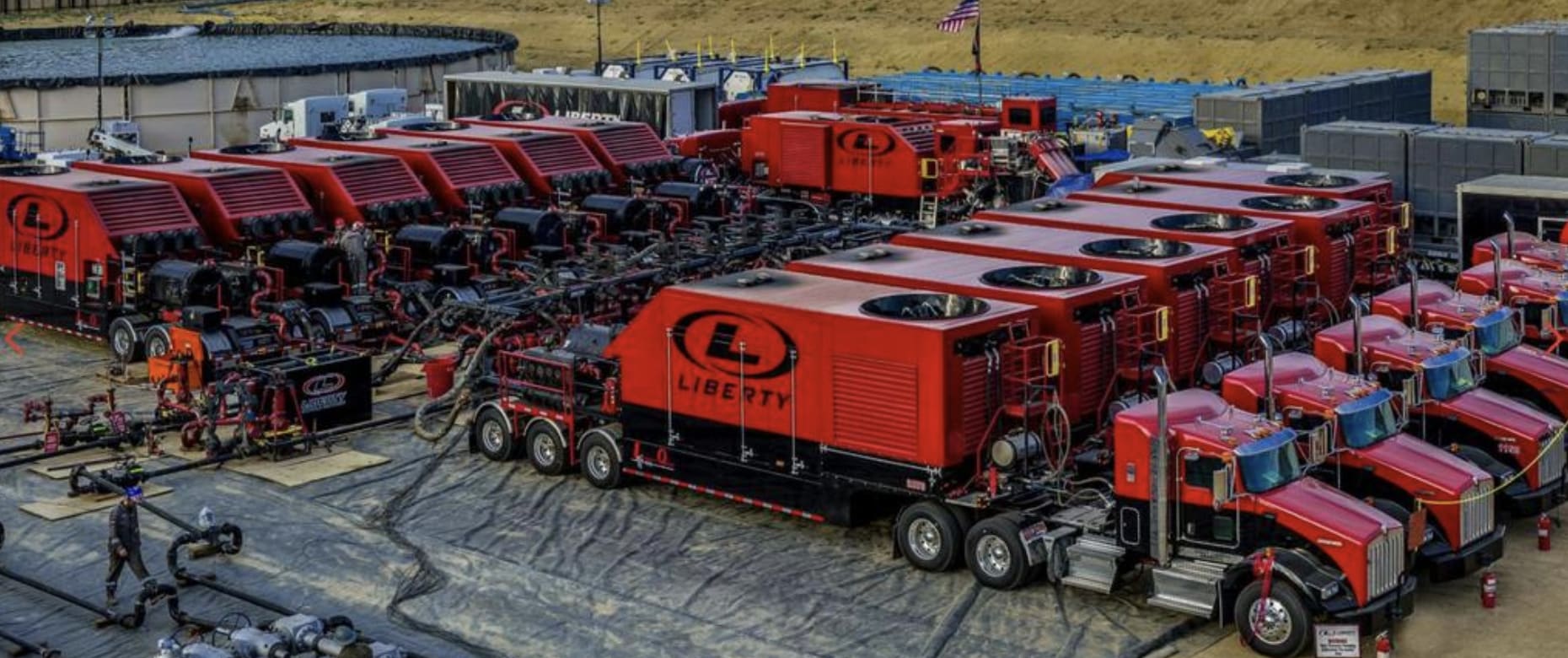
Denver company's $45M modular power project to fuel Adams County spaceport growth
Denver-based oilfield services company Liberty Energy struck a deal to power an air and space port being expanded in Adams County.
Liberty Energy (NYSE: LBRT) will supply modular natural gas-burning power generators to the Colorado Air and Space Port that are capable of providing 45 megawatts of electricity to the facility. The generators are expected to be installed at the airport in Adams County within the next year, give or take a few months, the company says.
It costs about $1 million per megawatt to build modular power generation plus the cost of various infrastructure — transformers, wires and the like — according to Liberty Energy CEO Ron Gusek. At this estimate, the project could cost Liberty Energy over $45 million to build.
Providing off-grid power electricity generation was natural for Liberty, Gusek said. The company has already been doing similar projects to supply power to Liberty Energy's fleet of electric fracking rigs that oil companies hire to establish new wells.
"The construction of a big power plant is a longer undertaking. That's something that might be measured in a time frame of more like three to five years instead of 12 months," Gusek said. "We have these scenarios now happening across the country where we have new demand opportunities popping up in the form of some new business — data center or otherwise — and really the inability of the grid to satisfy that demand. And so we've seen this growing demand for modular, behind-the-meter power generation constructed co-located with the actual demand center.
"It's a new business for us," he said.
Liberty Energy struck an agreement for the modular generators with AltitudeX Aviation Group, an organization that Adams County contracted in February to create a business plan and birth a master development agreement to expand the use of the space port and airfield.
The Colorado Air and Space Port is a 3,349 acre airport about seven miles southeast of Denver International Airport that has been licensed by the federal government to one day host space planes for horizontal takeoffs and landings.
About 960 acres at the facility are ready for development, an area AltitudeX aims to build on, powered by Liberty Energy.
The power generation provided by Liberty Energy is meant to be quickly established and scalable, providing an advantage over waiting for electrical grid upgrades from a utility, the company said.
Terms were not disclosed for the deal between Liberty Energy and AltitudeX.
Gusek said the main power grid won’t be able to meet the port’s needs, so Liberty Energy is essentially slated to provide all of its power. AltitudeX hasn't revealed its specific plans for the site yet, but according to Gusek, it involves more power than the grid can supply in the short term, meaning that Liberty Energy's modular power generators will power the entire airport, according to Gusek.
“We’re excited to collaborate with Liberty Energy and Adams County to establish key energy infrastructure at the Colorado Air and Space Port” Jon Roitman, Chief Executive Officer of AltitudeX, said in a release. “This partnership accelerates CASP’s potential to ensure a solid foundation for future expansion and growth.”
Similar agreements Liberty Energy has committed to include a partnership with Range Resources and the Imperial Land Corp. to supply power to data centers, industrial facilities and other energy-intensive customers in Pennsylvania. The company also linked with a firm called DC Grid to power electrical vehicle charging stations and data centers.
Liberty Energy plans to hire a third party to build the Colorado Air and Space Port's modular power plant. Gusek expects to have one or two Liberty Energy employees on site once the plant is operational, he said.
“Liberty already owns and operates about 130 megawatts of power divided into five small power plants, each about 25 or 30 megawatts in size and so we've developed the skill set around that, the supply chain, the packaging, the operation, the maintenance of this type of asset,” Gusek said. “The opportunity to step into small modular power generation looks pretty attractive to us.”
Centennial-based Boom Supersonic, which is trying to bring back supersonic passenger jets, will test its Symphony engines at the air and space port later this year. It plans on investing $3 million to $5 million to prepare its space at the space port for testing its prototype engines.
Liberty Energy was founded by current U.S. Secretary of Energy Chris Wright, who stepped down as the company's CEO earlier this year to take his new job in Washington D.C.
